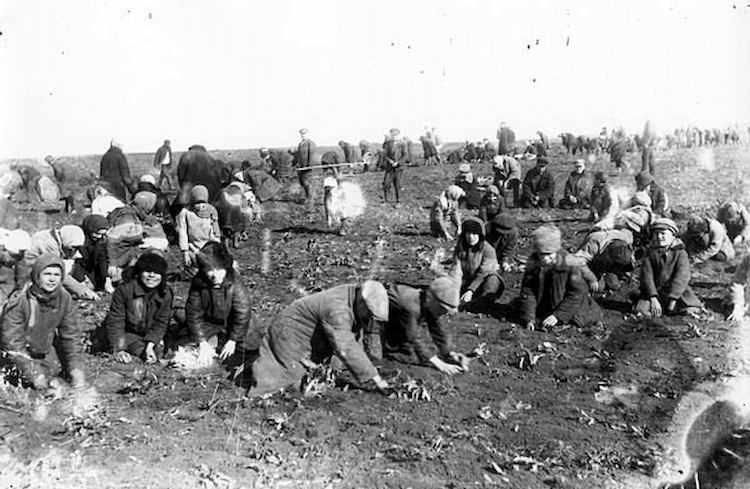Marx and Engels on ecology
*** Marx referred to capitalist farming as “an art, not only of robbing the labourer, but of robbing the soil” that sapped the everlasting sources of wealth — the soil and the worker. He argued in effect for the return to ecological sustainability, which had been destroyed by, and was not possible under, capitalism.Only a socialist society can build an ecologically sustainable world
A plethora of “blueprints” for an ecologically sustainable world have been produced by the dozens by Green groups here and around the world, containing logical and common sense solutions to global warming and the general environmental crisis. They fail not because their proposals for a rapid conversion to renewable energy and the rational reorganisation of production and consumption are far-fetched. They fail because they do not accept that capitalism is incapable of bringing them into being. Only a society that places the “associated producers” at its head and at its heart can open the way for the building of a genuinely feasible sustainable society...
A society run by and for the “associated producers” — a socialist society — would allow the controlling levers of the “treadmill” to be seized, bringing it to a halt so we can all get off and begin to think about, discuss and rationally plan the best way forward for both the planet and all its inhabitants. Profit will no longer dictate what is produced and how or determine the relationships of rich-country governments with the Third World. Almost immediately, huge material and human resources would be released to begin to rapidly reverse problems like global warming and the destruction of the oceans, as well as the wider global environment crisis, as well making a start on ending the poverty, hunger and disease that affect billions in the Third World.
How bad was Russian collective farming?
The human toll was very large, with millions, perhaps as many as 5.3 million, dying from famine due largely to collectivisation, and much livestock was slaughtered by the peasants for their own consumption. In the collective and state farms, low labour productivity was a consequence for the entire Soviet period...
Why did Stalin's collective farms fail?
The tremendous loss of livestock through slaughter, inadequate fodder, and simple neglect made it virtually impossible for kolkhozes to fulfil their procurement quotas for meat and dairy products. Failure of collective farms to meet procurement quotas had dire consequences for their members...What Caused the Soviet Famine of 1932-1933?
Between 1932 and 1933, widespread famine devastated the Soviet Union’s grain-producing regions, including Ukraine, Northern Caucasus, Volga Region, Southern Urals, Western Siberia and Kazakhstan. Within 2 years, an estimated 5.7-8.7 million people died. The main cause of the great famine continues to be hotly debated, with theories ranging from poor weather conditions to the collectivization of farms, and from rapid industrialisation and urbanisation to the Soviet state’s ruthless persecution of specific groups. What caused the Soviet famine of 1932-1933, and why did an unprecedented number of people lose their lives?Children dig up frozen potatoes during the Soviet Famine in 1933.
LINK
- Forums
- Political Debate
- Accelerate the World's Transition to Sustainable Energy - to fight Anthropogenic Climate Change
Marx and Engels on ecology*** Marx referred to capitalist...
- There are more pages in this discussion • 741 more messages in this thread...
You’re viewing a single post only. To view the entire thread just sign in or Join Now (FREE)
Featured News
Featured News
The Watchlist
LU7
LITHIUM UNIVERSE LIMITED
Alex Hanly, CEO
Alex Hanly
CEO
SPONSORED BY The Market Online










